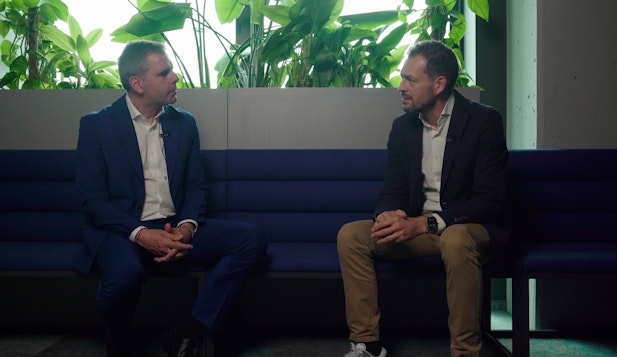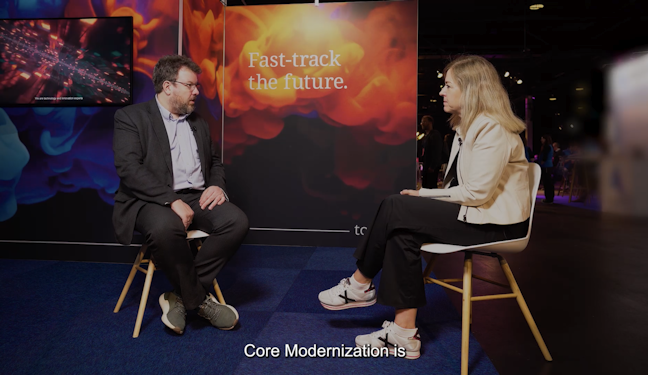Craig Beattie, Senior Analyst at Celent, and Claudia Jandl, Head of Banking and Insurance at NTT DATA DACH, discuss AI's transformative impact on insurance at the ITC DIA event in Amsterdam 2024. They explore AI's role in underwriting, claims management, customer service, and risk assessment, presenting innovative strategies to enhance competitiveness amid evolving market dynamics.
Speakers
Claudia Jandl
Head of Banking and Insurance (FSI) at NTT DATA DACH

Craig Beattie
Senior Analyst at Celent

Craig Beattie
Senior Analyst at Celent

Transcription
Welcome to another edition of our Insurance dialog live from the ITC DIA 2024 in Amsterdam. My name is Claudia Jandl and I'm head of Insurance for NTT DATA in the DACH region.
Today I have with me Craig Beattie, Senior Analyst from Celent. Craig, welcome.
I’m looking forward to our discussion. Craig is an experienced analyst and for over 15 years he's been advising insurers in the area of IT strategy, modernization, and how to cope with technology. Welcome, Craig.
So today we’ll talk about the journey of Gen AI in Insurance. And, at NTT DATA, we have the slogan “Ignite tomorrow, today”. And I think this slogan fits very well with the topic because, from my perspective, it's really true for this type of technology.
So let's talk a little deeper. Craig, you've been following the industry for over 15 years now. So, looking at the AI developments in the last two years, what are your takeaways?
What are my takeaways? I think AI is a really interesting topic, right? It's been around for decades, though. My degree, many years ago, was in artificial intelligence. And it's interesting how many of those techniques and technologies, we're deploying today, if that makes sense. But they were around decades ago, 20, 30 years ago.
If we look at machine learning techniques, expert systems, querying systems, we look at, artificial neural networks. There's been a lot of activity in the press recently about that. But these are technologies, techniques and capabilities that have been around and discussed, for decades now. What we're seeing in the last, let's say, 20 years, is the rise of Cloud, the increasing availability of compute and the rise of Big Data as well. Being able to actually take large data sets and work with them efficiently.
Being able to get access to new kinds of compute as well. So, the use of GPU technology and artificial neural networks and lots of parallelism in terms of all that compute capability. All of these threads seem like they're separate things, right?
GPUs came out of people playing computer games. the rise of the cloud is about Amazon trying to get, well, Amazon and others trying to host, technology better. The rise of DevOps and automation and that sort of thing. We saw the rise of RPA, simple automation, all of those sorts of techniques. These things have grown up separately, And AI was one of those things.
But what we're seeing is a convergence of these technologies coming together, and creating maybe not a perfect storm, but creating new capability out of the convergence of those things without the GPUs, then that big data capability, we wouldn't have had the massive deep learning and the massive, artificial neural networks that we have today.
And we wouldn't have seen the rise in AI and the deployment of those capabilities that have been around for a very long time. Then if we look at Generative AI, as you mentioned, large language models and other techniques that are set around that: these are building on the shoulders of those giants. I feel like, to many people who have been following AI, it seems like in the last few years it’s really, really taken off.
What we've got now is an environment where some of these technologies can really flourish. It's almost like we found the right soil, the right conditions for these technologies to grow,and it's really starting to impact human society, right? People have got machines in their homes that talk to them, and they can talk back,and the machine seems to understand them. We're stepping into a place now where that kind of technology and deploying these techniques is starting to accelerate.
We're starting to do massive experiments, with the whole population of the planet, with some of these technologies. It's a really exciting time.
Yeah, I'm with you. I think the technology baseline definitely has developed a lot. And as you said, the convergence of the technology really makes a difference. my observation actually is in terms of, like, speed. Sometimes I'm thinking that it’s not necessarily the technology that is holding us back, but the way in how we use it and how we infuse it in our daily life and also our business operations.
So looking at the industry, from my perspective, at least some of Insurance, I feel there's still a lot of untapped potential, and a lot of efficiencies we could gain with that technology now being ready to go. It's not necessarily seen, but part of it probably comes from how we get it into our organizations, how we empower people, how we empower teams, how we set a baseline.
But do you have a view on that, on how to do it?
Yeah, absolutely. So I mean, one of the big changes, I think there's lots of big changes over the last several decades. One of the really interesting changes, I think in the last decade, five years, is that it used to be that if you wanted to build an artificial neural network, you wrote the code and to do it right, you needed to be a programmer, have enough understanding of math's to be able to do it and have enough understanding of the underlying principles.
So, this idea of a data scientist is a term that's only really emerged in the last decade as well. So, you needed that kind of skill set to play with AI. What we're getting to now is a world where you have citizen data scientist tooling which allows somebody who understands a business, Insurance, and the data that sits in there.
And they can start to build useful things out of AI technology. They can start to build models, they can start to play with it, see what the opportunity is. And I think that's where a lot of the real innovation happens when somebody who is sitting like we are, I'm an insurer, I've got some products that will solve problems and I'm listening to the customer who has those problems and then understanding where AI, and some of these things can help optimize that, reduce some time, automate some processes, that sort of thing.
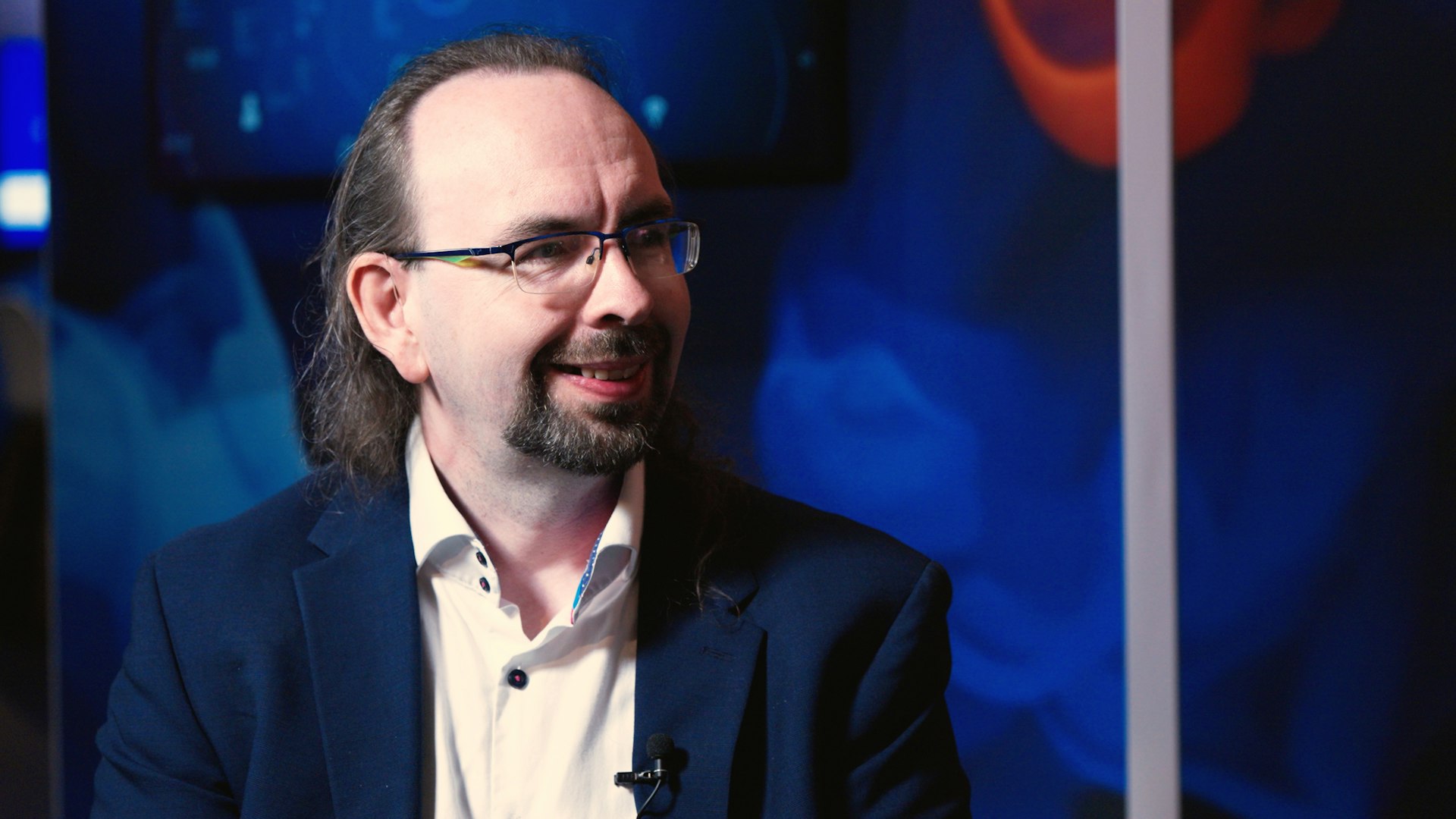
But yeah, this idea of citizen data scientists is interesting to me. The idea that somebody who doesn't understand the maths behind some of these tools can still deploy them and use them. That's a great opportunity here. But, I think it points to a wider challenge for the Insurance industry. For somebody to do that, they need to have an understanding of the data.
Data is no longer an IT problem. It's not something that only the CIO or somebody with a computing degree worries about. It's something that's core to the business. It's something that enables operations to get better, enables claims to reduce our expenditure. It enables the loss ratio to reduce within an insurer. It becomes something that everyone needs to understand.
And I think that upskilling and that human element feel like it's one of the inhibitors to adopting some of those technologies as well. There are several others I could talk about, the regulator as well, but I think, getting people familiar with some of these technologies is part of the challenge. I'm sure you've had some of that in your organization as well.
Yeah. You're right. I mean, what you're saying is, like the people aspect behind us making sure it's not only that the technology or the IT teams talking about it, but it’s a topic that involves a broader discussion. And I think we are already seeing that also in the organizations of our clients we work with. The responsibility for those topics is now a shared responsibility.
We see business departments getting much closer to IT departments. You see the development of totally new organizational structures and joint working models to increase speed on the one side, but also talking about DevOps models and really understanding on how the collaboration needs to happen differently. So from early on, we are making sure that we're talking about the business topic, the business problem, and we are bringing all of us together, including the technology that has laid the foundation to really make a difference.
Enabling, as you said, is also an important topic. I think that brings me a little bit to the next topic. Today everyone's talking about Gen AI. It's a very present topic for all of us. so looking at today, what do you see as the trends that are making changes on technology,
So that we are getting the feeling which is further down the hype curve.
Oh nice I like that. So there's some, it's a really interesting topic to dig into. I think for some teams that are looking at AI within Insurance, Gen AI almost felt like a distraction. There's lots of technologies around AI that have lots of opportunities to improve the insurer and quite frankly, the Insurance industry is still betting on some of those in.
Right. The Insurance industry was lucky that the actuaries, the mathematicians coming into the industry out of university, are coming with some of these new skills, with this new interest, new curiosity around these techniques. So, unlike some other industries where coming across those skills was quite difficult, some of those already exist in the Insurance industry.
but the challenge then has been to reorganize yourself, right? Sort of almost, reorient the organization to listen to some of that skill, some of that curiosity, and bring it in. and that's taken a little while. And I think the Insurance industry has many opportunities, many new partners, many of them are here today at this conference we are recording at, so they're still betting that in. And then we have Gen AI come in. Right.
So then, what we tend to see with technology is lots of interesting incremental improvements. you might say the iPhone 14 was a little bit better than the iPhone 13, right? just as an example. But, Gen AI is one of those things where, wow, this feels different.
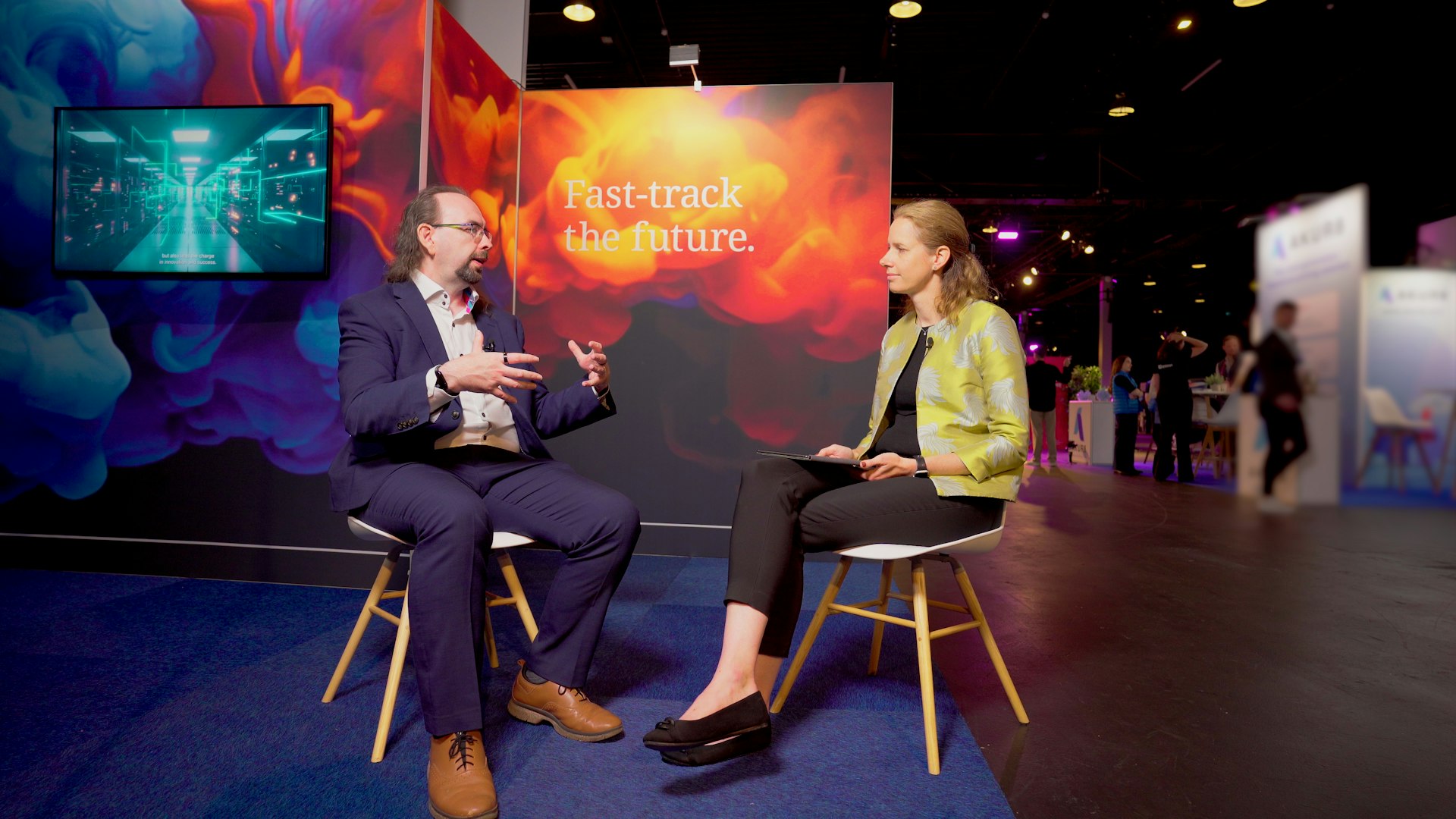
Suddenly its really interesting. It didn't exist for most people on day one and then 31 days later, at the end of the month, everybody's heard about it. It's all over the news, and the CEO is ringing up everybody in the organization saying, what are we doing with this? so for some people a distraction. for others, a great opportunity, an opportunity to play that kind of curiosity around trying things out.
Absolutely core, Right? It's a it's nice to see the sort of almost, childlike, curiosity with the entire industry, and some new, new skills to develop. Right. So nobody two years ago had heard of prompt engineering, but that's starting to become a term now within Gen AI, in terms of how do I articulate what I want this tool to do in plain English in a way that gets the result that I want?
and it's not a technical thing, and it's not really a business thing. So theres that curiosity and that, eagerness to play as part of that as well. But we're already seeing multiple insurers globally playing with it, deploying it, getting it to production in front of their agents, in front of their staff, impacting that customer engagement already.
In less than a year, the speed with which the Insurance industry is responding is extraordinary.
This is also what amazes me. The speed is, I think, really impressive. But the point you were touching on, I also, Gen AI for me also feels like the iPhone moment which it's quite often associated with, as you said to me, there's like a fundamental difference because when we have the iPhone coming up, it was so intuitive to use that everyone automatically knew what to do. I think Gen AI. I have slightly different, so I think a lot of people are talking about it requires new skills, as you pointed out. Yeah, I think there's still a way to go to really make sure that when we talk about Gen AI, everyone has the same understanding and really knows what's behind. So from my perspective, I think, the speed, the excitement, that's definitely a positive impact we should use.
But I think definitely, we need to take also a stronger focus on how we can make sure that the empowerment is really there from all the levels, from top down, down to the people that really work with it. You were mentioning prompt engineering. I think people are trying it out. So there's a lot and try and see which I think definitely benefits the trend, but really making sure as organizations that we also have a plan on how we structurally elevate the skills to go forward.
So this whole transformational aspect, coming out of the technology for me is one of the key priorities to make sure that we're on top of the technology and we can capture the full value.
So that's definitely an important thing.
I mean, looking at it, there are a lot of POCs going on, which I think is definitely benefiting the processes, topics like complex claims management that have been discussed for quite some time in the industry, because it was really hard to get the arms around, are now seen from a very different perspective that, for instance, also an area where we have intensive engagement with our clients to see together with big partners like Google, Microsoft and the technology to see how we can tackle some of the topics that are around for quite some time.
Also, looking at customer engagement, I think that's also a sector in the industry where there's definitely room for improvement. And so now with the technology coming up, I think customers also feel open to try out this technology and their experience with their insurers. So I think that's why we now are on a larger playing ground on how to get started.
The big question to me is really on how do we structure all those discussions? And I think early on in the technology, it's fair to say we have to use the storming and norming to find out where we're at. But, we as NTT Data are discussing with our client intensively how to really put this into a framework so we can guide the activities. At NTT DATA, we call it from data to value, But I think there are various approaches to it. Really it's making sure that the things you are trying out also fit the strategy you want to achieve. So, it's not only playing with the technology, but really from the beginning, having the discussion on what is the value, what's the outcome I'm expecting. I think also theres then topics on how do we ensure that from an organizational perspective?
So what is the operational framework we operate in with this technology? Do we have individual teams trying it out or are we trying to, like, have a central governance model? I mean, these are a lot of discussions that are also happening with our clients just to manage the complexity, especially in large organizations.
Then obviously, getting people on board and making sure that we have the transformational approaches that are happening. So, I think it's good that we are in this try mode and everyone is open and everyone's testing. I think it's also very important to keep the structural framework going, so that we make sure we capture the value, and to not be disappointed if we're not seeing the short term value on it.
Yeah, absolutely. I think, having that good business practice of knowing what KPI’S, what OKRs, what are you measuring In order to know that you're doing things better? absolutely. You need to drive all of that. And I was talking about citizen data scientists, but having those experts there who can help explain and navigate some of this is core too.
Right? many of the people listening to this, will have probably heard that Gen AI can hallucinate. Depending on how you set up the original model and things like that, and in an environment where we do report to regulators and there are expectations on us and we should as an organization absolutely tell the truth to the insured.
Right, as an insurer, we have some commitments there. We need those experts in there to help us navigate and make sure that we're doing the right thing. So we are avoiding those potholes by using some of these tools. So really exciting time. But I completely agree with you.
I must admit, I'm one of those who really likes playing with technology. I see something, I go, oh, there's lots of opportunity there. But you're right, You need that focus on the value, that focus on, okay, we played with it for a while now, is this something we take to everyone? Or is it just an interesting toy?
Yeah. It’s really interesting to see that, partners for insurers like yourselves, and insurers themselves are already finding that value and Gen AI quite so quickly. It's great to see that it is impacting the insured as well, making it through to the clients. Yeah. It needs all that discipline as well as that sort of play time as well.
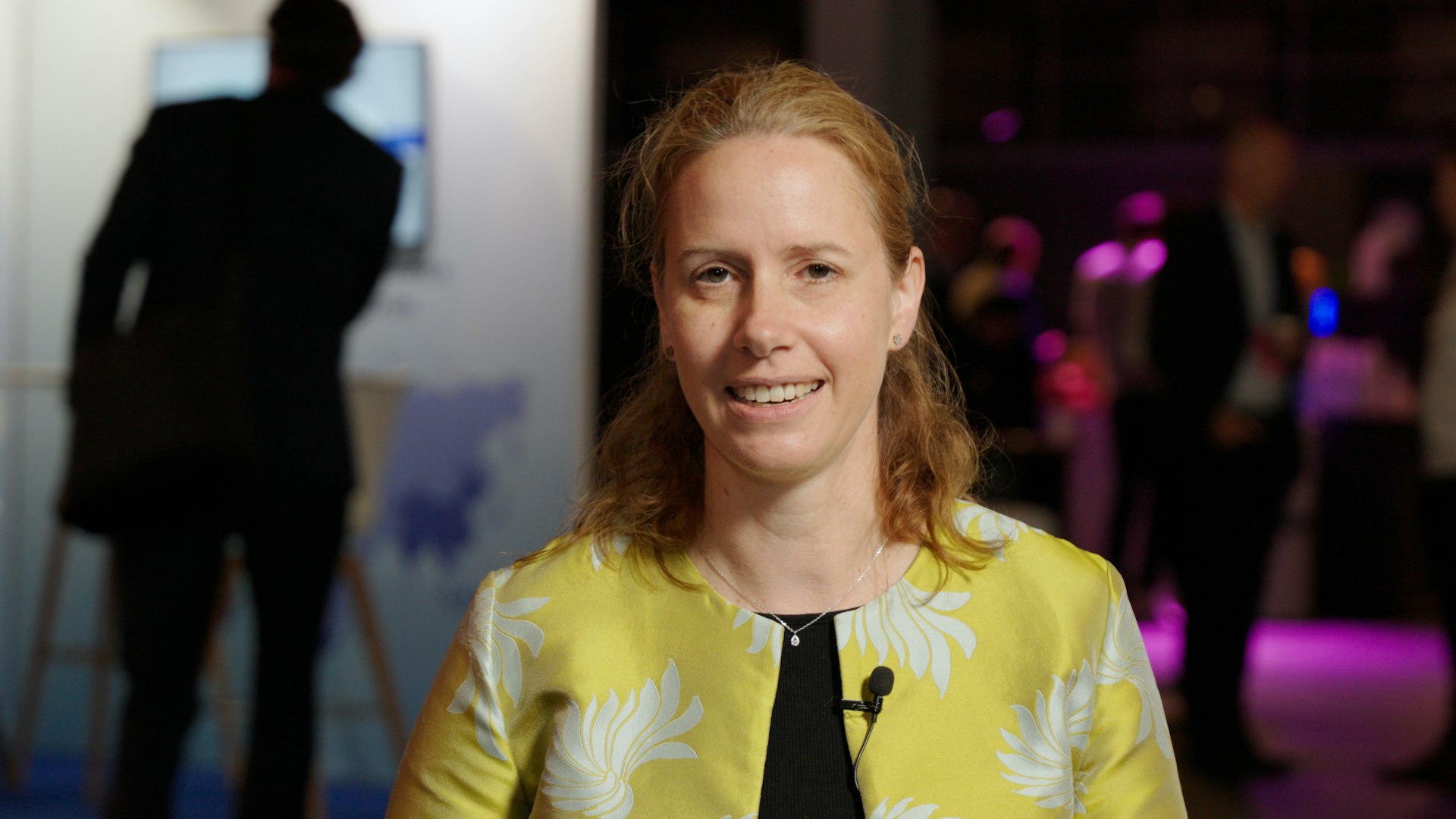
Yeah, And I think that brings me to now look into the future. I mean, for you as an analyst looking into your crystal ball, what do you think technology will hold for the future?
So what what we're seeing, I think, across all of these technologies that are supporting each other, building on each other, converging and creating new opportunities, those kind of iPhone moments, as you described earlier on, are happening more frequently now. So if we look out to the rest of this decade through to 2030, just on AI, we're probably going to see a couple more of that kind of Gen AI moment.
There will be a couple more step changes. And I think, the world, you know, if you look at what the journalists were saying, what the insurers were saying, how customers responded, to Open AI when they put their Chatgpt tool out there, how quickly people signed up were playing with it, coming back with their responses.
I think at this point in time we're very, very open to that. This implies that we're probably going to have 2 or 3 more events like that between now and 2030. So to say that, I was deploying AI, many insurers were, Gen AI comes out of nowhere, it wasn't expected by most insurers, CIO, the CEO rings up everybody and says, what are we doing with this? It's really cool.
My son just showed me what he can do with it. That's going to happen again. And whilst we need to try and bet in the projects we were doing, and now we're doing proof of concepts and we're trying to bet in GEN AI, we need to prepare, have people and have that open mindedness to say Gen AI is not the last thing that's going to come. Actually, in the near-term, we're going to see some more changes like that as well.
Yeah, yeah. The question that comes to my mind is also like, how do we scale? We've discussed a lot on like the value proposition to it. And I think now we're in a phase where people are starting to explore the POCs, we are seeing value, and the question is now, how do we make sure it works at scale?
Because this is I think really where the difference comes from with the technology. So, with Gen AI and, you know, better than I do, but on the AI side, I think also what we need in terms of infrastructure is to really make sure that we are able to scale what we need in terms of data, so we ensure we have accurate data to play the POCs we are trying right now, also at scale.
These to me, are very important discussions We need to have now because of details like the excitement on the results we are seeing on a small scale, like infrastructure things, they don't come overnight. So, I feel that we are also now need to start a discussion on like how do we factor in those scaling attributes we need to look at from the beginning. so we are making sure that the success is coming out later.
I was talking to an insurer not long ago, and they showed me a picture of the time when they had their mainframe installed, and they had to remove a wall from the building, and there was a crane to put this thing in and that sort of thing. So, there was a time when it was easier to swap out people than it was to swap out technology.
I think one of the big differences now is that with the right partners, with that right investment in cloud and all of those technologies, actually, you can swap out your technology and bring in a new technology. so finding the right partners who can help you do that and get that agility there. That starts with the question of what is it that's difficult to change in the organization.
Now people, now they are difficult to change, but the people that you have today, the people you're going to have in three years, you can find the right partners. But it takes a little while to develop those relationships and those sort of things. So getting the relationships now, understanding how you work together, getting that curiosity,that's part of the key there. The skills are something that we need to continually invest in. And then if I think about what's been happening over the last decade or so with the insurTech rise, what you have now is, Insurers are quite mature and how they engage, and they are used to having a team that scout and look for opportunities, and another team that bring the chosen Insurtech in and help them bed that in, and partners like yourselves that are helping insurers do that as well.
That same attitude probably needs to be developed here for AI as well. Right? So how do we get that curiosity? How do we play with these technologies? and then, like you say, the next thing might happen before all those Gen AI opportunities have been realized. So there needs to be a team of people who are there just almost finishing the job.
Sort of like, we still have this opportunity, we need to get that in and run with that. It might be staff from the insurer, it might be a partner. How are you helping insurers do that, by the way?
In the end, it's becoming more of an ecosystem play. I think this is where we all need to realize, that from a data perspective, we need to look more into the ecosystem and how we can create value, because this is where the true value also comes out for Gen AI, but also on the operational side, as we said, I think, in this sector, partners, tech players, insurers, even customers, all need to start looking at it from an ecosystem perspective.
And to me, that will unlock, a larger amount of value to the discussion. So, regarding what we talked about in the beginning, what do we need to ignite today so we can capture the value tomorrow? What will be your one recommendation you would give on that topic that should not be overlooked? You can do two if you have to.
I think it’s two, and they are yours actually, to be honest, the two things that are difficult to establish quickly right now, are people and then data. Right. the thing that will differentiate in the future is data, some of that will come externally. I think, the Insurance industry will buy in data and look for opportunities there, but the insurers and the brokers, the reinsurers are sitting on a wealth of data, century's worth of data in some cases, that's going to be where the opportunity comes from the people, and the data I think.
I totally agree. And I think that's probably the one thing I would say it's an area where the whole work needs to be done right, so we can capture that value and make sure we have the right data strategy to make sure data systems are in place to really hold the value.
I think I'm totally in line with you on that point. Craig, it was very exciting talking to you about this topic. Thank you. Very inspirational. I think we're all looking forward to getting this ecosystem going so we can capture the full value of Gen AI in the Insurance sector. Thanks for your time.
Welcome. Thank you
